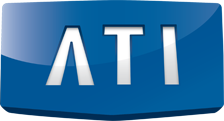Electrician Courses: What Should You Be Learning In Your Electrician Program?
There are several ways to become an electrician. One popular path is to complete an electrician training program at an accredited career school. However, not all career schools or electrician programs are created equal. So which electrician courses should you be taking? Keep reading to find out!
Introduction to National Electric Code & Blueprint Reading
The National Electric Code (NEC) is a regionally adoptable standard for the safe installation of electrical wiring and equipment. Familiarity with the NEC is fundamental to a career as an electrician. Any decent electrician program should have electrician courses that pertain to the NEC. Topics learned in an introductory NEC course should include the history and evolution of electrical codes in the United States.
Furthermore, electrical courses focused on the NEC should cover how to read, understand, and use electrical blueprints in accordance with NEC regulations.
Electrical Theory
Another foundational electrician course is an introduction to electrical theory course. Classes of this nature should focus on the fundamentals of electrical power and lighting circuits. They should also provide instruction on various laws and principles of electricity. This should include an examination of electrical energy fundamentals and the relationship of electrical quantities within Ohm’s Law.
Electrical Design & Lighting Concept (Residential)
Ideally, this course will take place after the introduction to the NEC. This course should teach students how to design and draw NEC-compliant branch circuits for residential structures. Topics covered in electrician courses of this nature include:
- Load calculation
- Receptacle placement
- Lighting outlets
- Ground Fault & Arc Fault protection
- Electrical symbols and prints
- Identification & installation of various residential lighting fixtures
Commercial Wiring & Flexible Cables And Conduit Bending
Electrical courses of this type should teach students about various flexible conduits and flexible cable assemblies. They should also cover NEC code requirements for listed flexible conduits and cables, as well as their installation requirements and associated connectors and fittings. Such courses should provide hands-on training on the installation of both metallic and nonmetallic conduits.
Electrician Courses at ATI
Here at ATI in Las Vegas, we offer electrician courses that cover the above topics and then some. Our electrician students receive a well-rounded, hands-on education that prepares them for a range of entry-level electrician jobs.
To learn more about the electrician courses we offer in our Electrical Technician Program, give us a call and speak with one of our admissions representatives. You can also follow us on Facebook to join the conversation about what’s going on at ATI!













